Paleontology
-
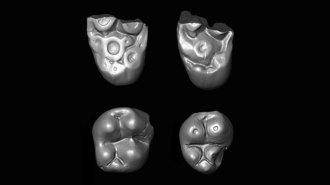 Paleontology
PaleontologyTwo primate lineages crossed the Atlantic millions of years ago
Peruvian primate fossils point to a second ocean crossing by a now-extinct group roughly 35 million to 32 million years ago.
By Bruce Bower -
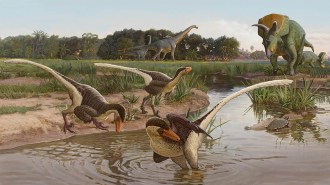 Paleontology
PaleontologyFossils of a new dromaeosaur date to the end of the Age of Dinosaurs
Fossils from a new dromaeosaur recovered from New Mexico suggest these fierce predators were diversifying up to the end of the Age of Dinosaurs.
-
 Paleontology
Paleontology‘Wonderchicken’ is the earliest known modern bird at nearly 67 million years old
A new fossil find, dubbed the Wonderchicken, is a common ancestor of modern ducks and chickens.
-
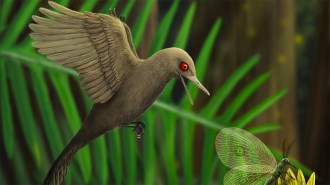 Paleontology
PaleontologyThis ancient dinosaur was no bigger than a hummingbird
The skull of one of these Mesozoic Era birds — the tiniest yet known — was discovered encased in a chunk of amber originally found in Myanmar.
-
 Paleontology
PaleontologyA squid fossil offers a rare record of pterosaur feeding behavior
150 million years ago, a pterosaur attempted to snatch a squid from the ocean surface and lost a tooth in the process.
-
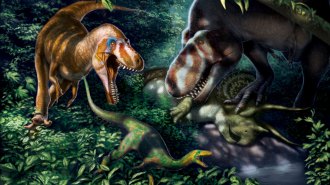 Paleontology
PaleontologySmall ‘cousins’ of T. rex may actually have been growing teenagers
Fossil analyses suggest that Nanotyrannus wasn’t a diminutive relative of the more famous behemoth Tyrannosaurus rex.
By Sid Perkins -
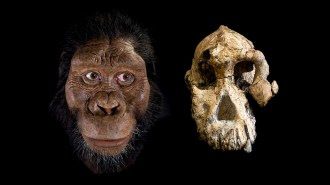 Paleontology
PaleontologyScience News’ favorite fossils of 2019
Fossil discoveries reported this year included Cambrian creatures, ancient bone cancer and a peek at life’s recovery after the dinosaur die-off.
-
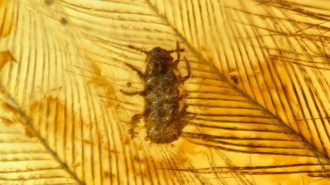 Paleontology
PaleontologyLicelike insects munched on dinosaur feathers around 100 million years ago
Fossils in amber push the origin of feather-feeding insects back over 50 million years, a study finds.
By Sofie Bates -
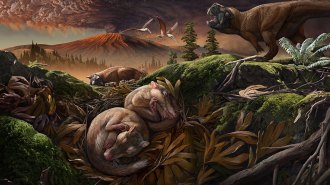 Life
LifeAn ancient critter may shed light on when mammals’ middle ear evolved
Rare skeletons are helping to pin down the evolution of mammals’ three middle ear bones, known popularly as the hammer, anvil and stirrup.
-
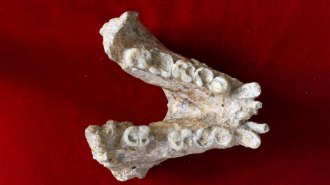 Animals
AnimalsA tooth fossil shows Gigantopithecus’ close ties to modern orangutans
Proteins from the past help clarify how an ancient Asian ape that was larger than a full-grown, modern male gorilla evolved.
By Bruce Bower -
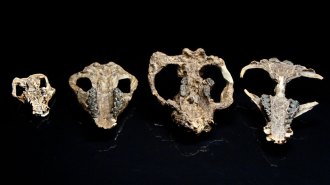 Life
LifeRemarkable fossils capture mammals’ recovery after the dino-killing asteroid
A fossil-rich site in Colorado is revealing how mammals rebounded and flourished after an asteroid strike 66 million years ago.
-
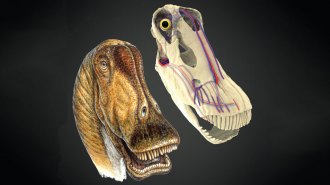 Paleontology
PaleontologyBig dinosaurs kept cool thanks to blood vessel clusters in their heads
Giant dinosaurs evolved several strategies for cooling their blood and avoiding heatstroke.